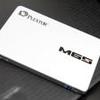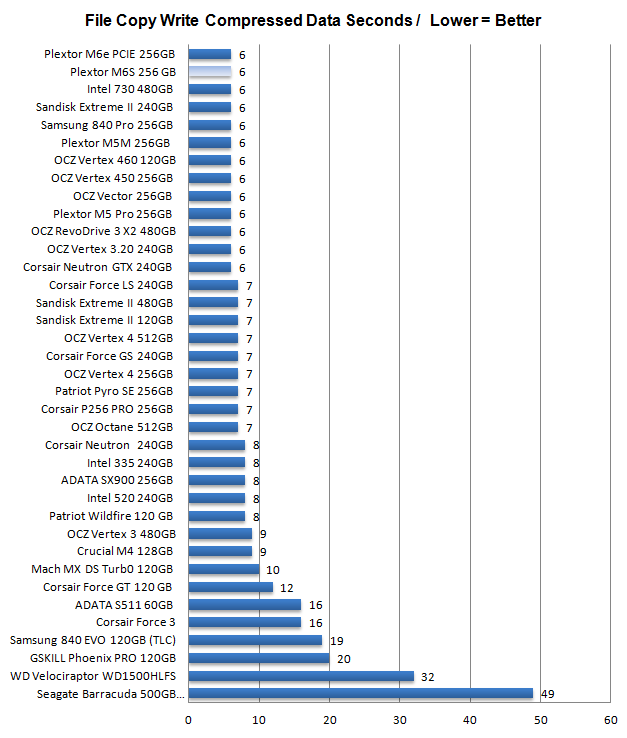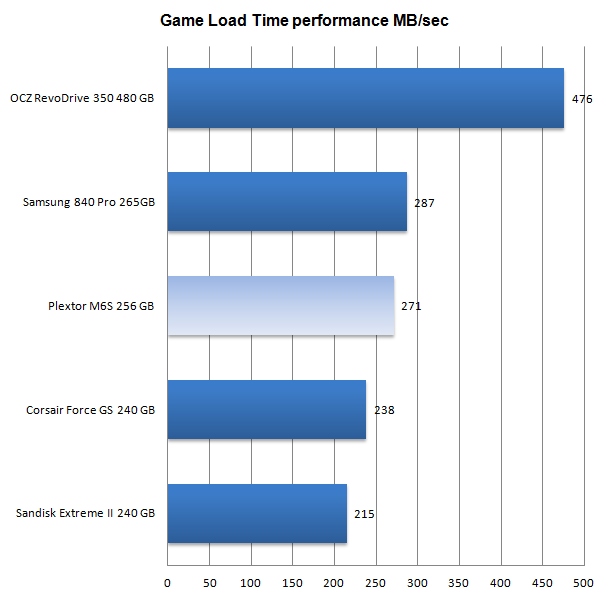SSD Performance File Copy tests
SSD Performance File Copy Tests
In this round of benchmarks we start off with our real-world file copy tests. Currently certain controllers benefit from compressed files, while others don't. Certain storage units hate small files, others work well with it. So it only makes sense to do some manual tests on that. Any storage unit's nightmare, whether that is an HDD or SSD, is storing really small files as fast as possible. So on our Test PC we created a RAMDISK partition (we can't use an SSD/HDD here as it would be a bottleneck) in which we install roughly 3GB worth files. We now measure how many seconds it takes to copy the files from the RAMDISK towards the storage unit tested today.
File Copy Write Test - Compressed Files
For the real world file-copy test we take compressed data, like small JPG and MP3 files. We have them in random sizes from less than one KB up-to slightly larger 2 MB files to emulate MP3 copying better (which most of you can relate to a notch better).
So we know that once we pass 16KB /32 KB sizes, SSDs speed up almost exponentially. Hence we increased the total workload here towards 3 GB with 4272 compressed files in total, with a maximum files-size of 2 MB. We drop all these MP3/JPG files onto the drive (copied from a RAMDISK) and measure the amount in seconds it takes for the storage unit to deal with it. Lower is obviously better. As you can see, the file-system is the bottleneck here. Six seconds is to be considered as fast as the PC can cope with it.
File Copy
The most basic and simple test, yet everybody uses it on a very regular basis. Above we simply drop a 10 GB compressed MKV file onto the SSD. As you can see the result is roughly 450 MB/sec writes at the end of the file copy sequence. That number fluctuates a bit here and there during the write process, but was pretty consistant. This storage unit is very strong with large file writing.
Performance Game Load Times
Here at Guru3D.com the audience is catered to gamers. And as such I like to start offer real world performance game tests. During game load a lot of things happen in the system. The CPU is hard at work, your SSD loads up executables, binaries, shaders, textures and what not while the system memory process it all. Thing is, with a fast SSD you can really increase the overall start time of your games.
We now measure based on game sequence load and translate that into the number of MB/sec the storage unit can manage and load. Higher is better in this chart.




